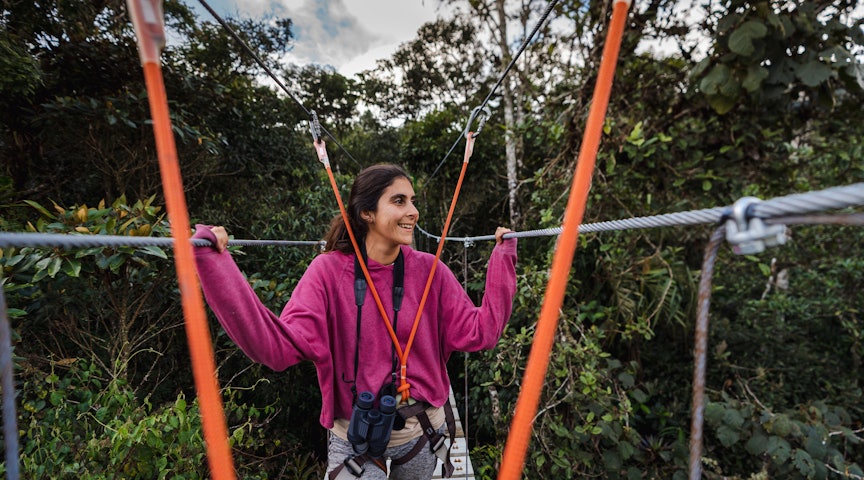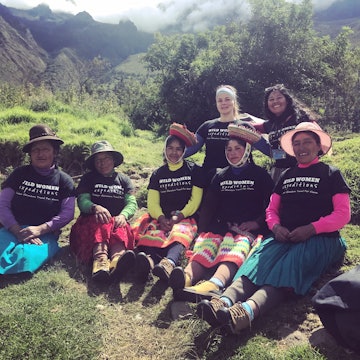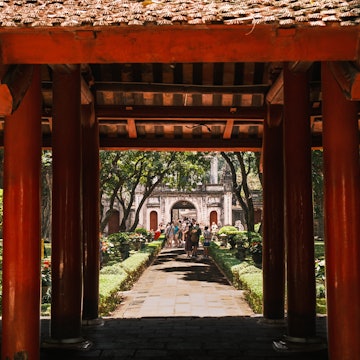
Responsible trekking in Peru: What you should know about workers' rights for porters

Jun 28, 2019 • 5 min read

11 March, 2016: Peruvian porters with loaded packs carrying camping gear for hikers on the Inca Trail.
What if we didn’t have porters to help us achieve our bucket-list trek on the Inca Trail to Machu Picchu? No one to help carry our clothes, tents, gear, and assorted home comforts. Only ourselves to rely on for super-fresh gourmet meals, warm water to wash our faces and hot coca tea to revive our aching bodies. We’d be hard-pressed to achieve any kind of comfort or personal goals without the help of local porters. Thank goodness they’re around to support our ambitious treks...but what if they weren’t? Unfortunately, we may soon find out what that reality looks like.

Current porter standards
The working conditions for the Inca Trail porters are protected by a 2001 law that: 1) limits the load a porter may carry to 44 pounds (20 kilograms), with 11 pounds (5 kilograms) reserved for personal items; 2) provides for warm clothing and accommodation; 3) ensures appropriate rest and sleep; 4) sufficient food; and 5) life and accident insurance. Since 2001, the leaders of the porters’ union—the 10,000-strong Regional Federation of Porters 'Camino Inca Daniel Estrada Perez' (RFP)—have met sporadically with representatives of the three main Inca Trail tour operators associations (AATC CUSCO, ASSORCIC, and Association de Operadores de Turismo Ecologica de Cusco), the Ministry of Culture, and SERNANP (Servicio Nacional de Areas Naturales Protegidas por el Estado, the government agency that oversees Peru’s natural protected areas, formerly known as INRENA) to assess the law, with a major discussion held in 2017. At that point, the salary was reestablished at 230 soles (US$70) for a four-day trek.
A few companies abide by at least some of these decrees. Alas, many that are more interested in the bottom line aren't as ethical. This situation is creating friction to the point of explosion. After enduring years of poor working conditions, the porters are now working together to demand proper working conditions and fair salaries. 'The companies are paying less and less to these guys,' said Alberto Huaman, RFP’s elected president. 'They have to carry more and more every year. They work more than 16 hours a day, even 24 hours. They want a good salary for this job.' In short, the conditions of the 2001 law are not being upheld.

RFP requested several meetings in early 2019 with the three Inca Trail tour operators’ associations, the Ministry of Culture, SERNANP, and Congressman Armando Villaneuva, who for a time was interested in drafting a law providing better porter working conditions. When no one, except the porters, showed up at the last planned meeting, they needed a new tactic. On June 6th and 7th more than 500 porters staged a mass demonstration at the popular km 82 entrance of the Inca Road; sadly it did not produce the desired change.
'A lot of travel companies managed to enter the Inca Trail the night before the strike, so they wouldn’t get bothered by the porters,' said Miguel Angel Góngora Meza, a former porter who co-founded the worker-owned Evolution Treks Peru. 'They feel the pressure of the porters’ demands, they’re aware. But they’re not doing anything.' Meanwhile, Alberto Huaman started receiving threats. 'Because of the strike, SERNANP is starting to take action against me,' he said. 'They are threatening my condition as a worker and as a human.' In practice this means charges could be taken against him for speaking up, which could result in a jail term of anything between 8 months and 20 years.

Making ethical choices
'The companies don’t want the clients to know this is happening on the trail,' said Góngora. 'Yet they don’t have the willingness to address the issues internally.' Despite the threats, Huaman said RFP is planning another strike on September 15, 2019. And the idea of shutting down all the entrances to the trail has been tossed around, but, as Góngora said: 'The whole point is, we shouldn’t get to that point.' Alberto believes the best solution is to hire an overseer of their own to control trail conditions. This would ensure a level of quality control that would ensure proper standards were applied to equipment, food and sleeping conditions. The porters are sure that having an overseer of their own would guarantee change. Their union is in the process of fundraising to make this happen.
While these efforts continue locally, important change can also stem from the actions of responsible travelers. It’s up to us—the trekkers who sign up for our once-in-a-lifetime Inca Trail experience—to engage with companies that abide by fair business practices. Before booking your trek, here are some key things to keep in mind, as advised by RFP:
Read TripAdvisor and Yelp reviews and social media to see what other travelers are saying about the companies’ treatment of their porters.
Do not donate to NGOs allegedly raising money for porters. If you want to donate money to help their cause, do so directly through the porters themselves.
So who should you go with? Huaman feels that only one company is doing it right, and that’s Evolution Treks. Llama Path is making good headway, including providing vacations for porters and a house near Cusco where they can gather before and after treks. Other companies are also starting to make positive changes in the interests of porter welfare; it's important for travelers to do their research before booking and look for clear evidence that companies are committed to ethical conditions. Reputable trekking providers will happily deal with any questions you may have before booking. 'We are fighting this fight to show people what happens behind the scenes,' said porter Miguel Mayta. 'We want to make changes for the better for the porters. We want people to see that we are human beings, not animals.'
Take your Peru trip with Lonely Planet Journeys
Time to book that trip to Peru
Lonely Planet Journeys takes you there with fully customizable trips to top destinations–all crafted by our local experts.
























